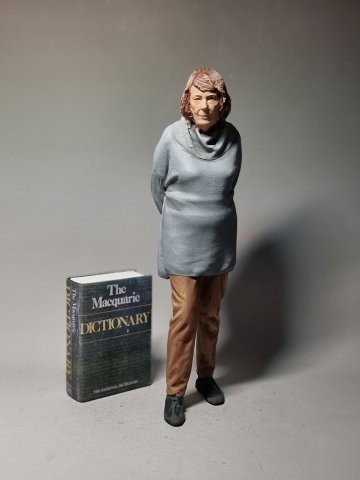
Sue Butler - Macquarie Dictionary
Sue Butler and Her Role in the Macquarie Dictionary: Preserving Australian English
Sue Butler’s contribution to Australian English and the Macquarie Dictionary is nothing short of monumental. For over 30 years, she was the driving force behind the dictionary’s development, establishing it as the authoritative record of Australian English, capturing the country’s unique linguistic identity. Her role went beyond mere editorial work; she shaped how Australians see and understand their language, giving them a resource that reflects their culture, history, and everyday life.
The Macquarie Dictionary was first published in 1981, at a time when Australia was still searching for a distinct voice within the English-speaking world. British and American English dominated dictionaries, leaving Australian English marginalized and often misunderstood. The need for a comprehensive, Australian-focused dictionary was urgent. Sue Butler’s leadership in the dictionary’s successive editions cemented its place as the definitive guide to Australian English, providing legitimacy to the distinct vocabulary, spellings, and pronunciations that make the language uniquely Australian.
Butler joined the Macquarie team early in its history and quickly became its editor, dedicating decades to updating and expanding the dictionary. Her work was meticulous and respectful of tradition. She understood that language is not static—it evolves with society, reflecting changes in culture, technology, and attitudes. Butler was committed to ensuring that the dictionary remained relevant, incorporating new words that emerged from Australian life, slang, Indigenous languages, and multicultural influences, while retaining the core values of accuracy and clarity.
Her editorial philosophy reflected a traditional respect for the written word and linguistic precision, balanced with an openness to linguistic evolution. This approach helped the Macquarie Dictionary earn the trust of academics, writers, educators, and the general public alike. The dictionary became an indispensable tool for anyone wanting to understand Australian English in its full context, not as a mere offshoot of British or American English but as a vibrant, living language in its own right.
Sue Butler also championed the recognition of Australian English internationally. Through her work, the Macquarie Dictionary gained respect beyond Australia’s borders, being cited in academic research and referenced in legal and educational settings. The dictionary’s influence extends well beyond a book of definitions—it acts as a cultural record, preserving the nuances and richness of Australian life and speech for future generations.
In addition to her editorial achievements, Butler engaged with the broader linguistic community, promoting the importance of Australian English and the Macquarie Dictionary through lectures, interviews, and collaborations. Her dedication has inspired a new generation of lexicographers and linguists, ensuring that the work she began continues to thrive.
In summary, Sue Butler’s role in the Macquarie Dictionary was foundational. She shaped and nurtured a national linguistic treasure that not only defines Australian English but celebrates it. Her legacy is one of careful stewardship, cultural pride, and unwavering commitment to the integrity of language. Through her efforts, the Macquarie Dictionary stands as a testament to Australia’s unique identity and linguistic heritage.